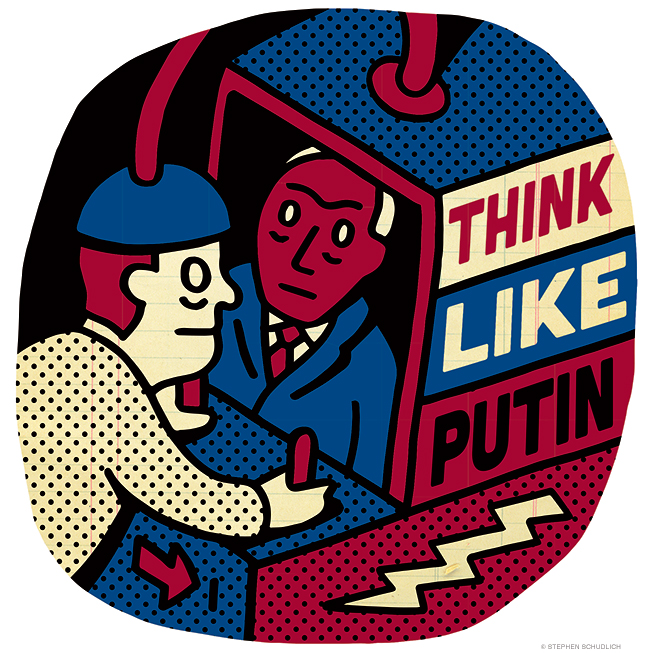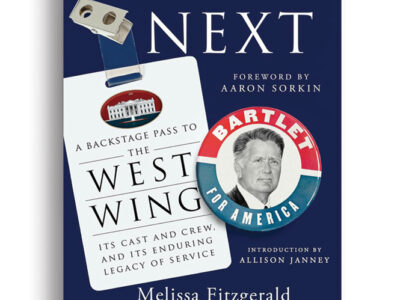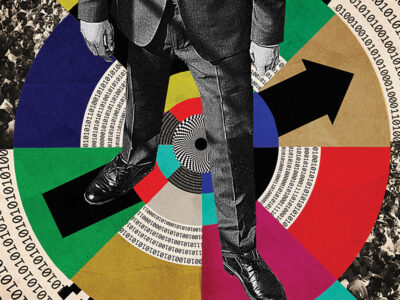
Not for a generation has Russia loomed over Europe and the United States as dauntingly as it has in the last year. The Kremlin’s rap sheet runs long enough to have fueled a 13,000-word New Yorker article in March hailing a “New Cold War.” From its 2014 invasion of Ukraine [“With the Donbas Battalion,” Nov|Dec 2014] and ongoing military operations in Syria, to clandestine disinformation campaigns, electoral meddling, and cyberattacks stretching from Estonia to the United States, Russian President Vladimir Putin’s regime has become a geopolitical powder keg. The question is: Why?
A March panel discussion titled “Black Russian/White Russian: Is Russia Undermining Europe or Saving It?” ventured contrasting answers. Mitchell Orenstein—a professor of central and east European politics in the Department of Slavic Languages and Literatures, which hosted the public event along with Perry World House and the Temple European Studies Colloquium—offered three main reasons to explain Russia’s newfound assertiveness toward Europe, which he dated to roughly 2009.
Putin, in this view, has been reacting against the European Union’s promotion of three things: democracy; a “heavily law-driven” and anti-monopolistic economic framework at odds with Russia’s dramatic turn since 2005 toward what has been called “state-monopoly capitalism”; and an approach to peace-building that Russia reads as imperial overreach.
“The only reason the EU exists is to create peace among nations via economic interchange,” Orenstein said. “But Europe saw itself as a growing community, spreading peace basically by expansion. And when Europe started looking past the EU10—the 10 central and east European countries that joined the EU in 2007—and began to look at the ‘partnership-for-peace countries’—what some people call the ‘in-between countries’ of Belarus, Ukraine, Moldova, Azerbaijan, Armenia, Georgia—Russia began to perceive that, in 2009, as an effort to undermine Russian control in states that had been part of the former Soviet Union, and therefore a direct threat to its geopolitical goals.”
Putin has responded with “a broad campaign to undermine the EU.” In diplomacy, it has refused to deal with the EU—insisting instead on direct relations with individual member states. Its propaganda machine has exploited digital disinformation tactics to sow disillusionment with Western-style liberal democracy across Europe and in the United States. Meanwhile Moscow has clandestinely supported Europhobic political parties ranging from France’s far-right Front National to Germany’s far-left Die Linke.
Moscow’s official line, as Orenstein summarized it, holds that Russia is in fact saving Europe from its own “cultural crisis,” in which traditional values have been eclipsed by the rise of gay rights, the fall of church attendance, and other signs of moral decay. In this telling, Russia is fulfilling its historical self-conception as “the third Rome”—inheritor of the mantle of Christendom following the Ottoman conquest of Constantinople.
Beyond affirming that this notion has substantial currency in contemporary Russia, none of the panelists endorsed the idea that Russia is Europe’s savior. But both Phil Nichols and Rudra Sil attributed Russia’s recent behavior to a quite different set of motives.
“It’s interesting to consider a timeline of the changes in Russian perceptions of the EU,” said Nichols, Wharton’s Joseph Kolodny Professor of Social Responsibility in Business and a well-connected Russia expert. “I would push it back a little bit further.”
“When the Soviet Union dissolved,” he said, “a lot of Russians were proud of what had just happened—that they had attempted an experiment in making the world better, and that they were smart enough to know when their experiment had failed and it was time to move on to the next thing. They had never perceived themselves as having lost the Cold War.
“The notion that the president of the United States standing in Berlin saying things like, ‘Mr. Gorbachev, tear down this wall,’ caused the collapse of the Soviet Union is nonsensical,” he continued. Russians “viewed themselves as at least equal if not in the lead of a lot of things for having tried that. Under President [George H. W.] Bush, Secretary [James] Baker especially was very disciplined in not crowing that the United States had won a cold war. And Russia viewed the US as a potential great partner.”
But over the ensuing decade, he observed, this restraint gave way to a “drumbeat” of American triumphalism. “A lot of the people I worked with in Russia, in the Kremlin, it was around that time that they started asking me questions like, ‘Wait a minute, what is United States’ intention towards us? Do they not consider us an equal partner?’ Then we started seeing attitudes towards the EU changing.” A critical turning point was the US-led NATO bombing of Serbia and Montenegro in 1999, in defiance of the UN Security Council.
“The siding of NATO with non-Serbs and non-Orthodox,” Nichols said, crystallized Russia’s growing suspicion about Western intentions. “It never escaped Russia that Serbia got bombed to the stone ages; while Croatia, which is Roman Catholic and committed extraordinary atrocities in Bosnia, didn’t really get bombed. And later we find [the EU supporting] Ukraine, where Russia perceived itself as doing the same thing that NATO did in the former Yugoslavia. So now Russia is deeply suspicious of what’s going on. Their perception of the EU isn’t that it’s a peace organization … their perception is that it’s a tool of the United States.”
In Rudra Sil’s view, the NATO campaign against Serbia—which produced hundreds of civilian casualties and eventually led to a UN-sanctioned occupation of Kosovo that incorporated NATO troops—was the culminating episode of a disastrous decade for Russia.
“The 1990s, when Western influence is ascendant, are critical to how we think about Russia,” said Sil, a professor of political science who specializes in US-Russia relations. “The 1990s for us was a decade of, ‘Hey, let’s remake Russia!’ A lot of scholars and policymakers flooded into Russia in the early 1990s with great ambitions and hopes of building a liberal capitalist democracy largely in the image of the US—a lot of American advisors giving instructions on how to build a market economy, how to create a stock market, even how to run a campaign. Yeltsin’s 1996 campaign was overtly scripted by US campaign advisors—it was a point of pride for people who helped Yeltsin win. That wasn’t called ‘interference,’ right, or ‘meddling.’ We didn’t have to hack—we told them what to do! But from the Russian point of view, that was a time when the West was trying to give advice.”
Nichols emphasized that influential Russians were eager participants in transforming its controlled economy into a market-oriented one, noting that essays written by members of the Central Planning Committee formed a blueprint for economic reforms pursued by prime minister Yegor Gaidar in 1992. Yet those Western-inspired reforms had a fraught legacy.
“Where did that lead?” Sil asked. “It led to a very weak Russia that sat aside and watched the Serbs getting bombed, their fellow Slavs, over an issue where they thought the interpretation of the facts on the ground was wrong—that the Serbs were not doing to the Kosovar Albanians what had been going on in Srebrenica, for example [where 8,000 Bosnian Muslims were massacred in 1995]—and there was an opportunity to try to get Russia involved in a larger multilateral effort. They felt sidelined, rightly or wrongly, emasculated, completely weak, and irrelevant.”
The emasculation was not just psychological. “After a decade of transition, industrial production is halved, real wages drop, and then you get the 1998 financial crisis,” Sil pointed out. “After all that Western advice—here’s how you run your banks, here’s how you run your financial investments—you have a 1998 financial collapse that destroys people’s savings. So what do they come up with? They come up with the message that we just gave up our sovereignty to some extent, we let other people tell us what to do, and we got taken down this path.” Whether the advice had been given in good faith or bad, it had led Russia toward ruin.
So even as the West regarded Russia as a burgeoning, if bumpy, success story—with democratic governance and a largely free press—the view from within was of a country in chaos. “Most people are experiencing extreme economic decline, extreme anxiety about the future,” Sil said, adding that contract killings crested in the 1990s, when scores of businessmen, bankers, politicians, and journalists were murdered amid what has been characterized as a gangster-capitalism free-for-all. “This is when Russians stop having kids—in my mind, there’s no single more crucial data point than when the fertility rate plummeted in the mid-1990s and late-’90s especially. That was Russians not seeing a future, not seeing a place in the world where they could have infants.
“If we don’t keep those things in the back of our minds, we can’t understand where Putin himself comes from, or where his support base comes from.”
Since Putin assumed power in 1999, Sil noted, Russia’s per capita GDP has doubled. The fertility rate has recovered. “So even though things are going badly right now—as a result of sanctions, oil prices, and maybe mismanagement—it’s an entirely different universe they’re living in. They’re playing in the big leagues. In that environment, decline will affect Russia, it will make them react, but it’s a different sort of situation. This is all relevant to Europe because when you get to the Putin regime, you see a reaction to a history of weakness in the post-Soviet era.”
And the reaction is less against Europe than against American dominance. “The US has started acting more and more as the beacon of democracy—the liberal internationalists pushing democracy from one side, the neocons talking about the new American century from the other side. [These groups] converge in the Middle East, and we have a whole series of civil wars to show for it. And they converge in the former Soviet Union, where you do get some ‘color revolutions,’ but you also get a lot of instability. So there is a reaction going on. And I think that’s the most important thing we’re seeing, is that what we’re seeing from Russia are reactions, not proactive desires.”
Desires are a hard thing to pin down. In Orenstein’s view, what Putin wants is to shift the global order away from multilateral institutions and toward an older template of Great Power politics.
“Putin has an alternative view of how international politics should be structured,” he argued. “It’s very simple: I’ll get together in a room with a couple of my buddies, and we’ll sort things out. If the Ukrainians are upset, we’ll figure out how to deal with it—between ourselves: Germany, the US, Great Britain, and France. And if that means that we partition it or break it up, so much the worse for Ukrainians—it doesn’t matter, because they’re not in the room.
“Some people would say that that sort of Great Power consortium is advantageous. I don’t think it is. Because the bottom line is these Great Power congresses basically create stability for a time at the expense of everybody else—at the expense of all the smaller countries. But European history has shown us over and over again that the smaller powers are not happy with that, and they cause wars. That’s how the system broke down. If you think about the First World War, it was a Serbian throwing a bomb into the imperial carriage of the Archduke Ferdinand.
“If you look back to the heyday of Great Power politics in Europe, it really only kept the peace for about 30 years,” he observed. “And the EU has kept the peace in Europe for 70 years. It’s the essential building block of peace in Europe, and we shouldn’t take peace for granted … Every single country in Europe has border disputes with neighbors. And Europe can very easily get into a warfare situation again. You can’t assume it’s a stable continent. It is because of the institution of the EU along with a couple others that keeps it at peace. And Russia’s attempts at undermining the EU is a very serious matter.”
Nichols and Sil concurred on the severity of the threat Russia poses to peace in Europe. But they raised a provocative question about the origin of that threat.
“It’s interesting to look at the trajectory of President Putin,” Nichols said. “For a while, he wanted more engagement with the West.”
“In the early 2000s Putin was perfectly happy to push for WTO inclusion, to make Russia part of a larger community, and multilateralism was very much part of that,” added Sil, who marked Putin’s 2007 speech at the Munich Security Conference as a seminal moment in the Russian leader’s pivot away from the geopolitics of cooperation. “But I think the post-9/11 world was different from the post-Cold War world. The US has been much more aggressive with efforts at democracy promotion in all kinds of countries, but certainly in the Middle East—a lot of high-risk strategies that have left lingering conflicts and daily bombings in places like Baghdad and Kabul. And there’s a group in Russia that thinks, ‘Maybe they got it wrong: they don’t know what they’re doing.’”
Or, more darkly, that maybe it really is part of a malign grand strategy.
“I think there was a lot of frustration over Kosovo,” Sil said, “but there was still an effort that maybe we can regroup, maybe we can halt NATO’s expansion into the former Soviet Union, and maybe we can then start working [together]. But when you get beaten up over Chechnya … and you get the US saying there are weapons of mass destruction in Iraq and then going in there and starting a whole chain from Afghanistan all the way through, you do have people saying, ‘Maybe there’s a different way. Maybe we wanted a multilateral world, but we’re not seeing it. We’re not seeing the US provide leadership for it; instead we’re seeing the US using NATO to carve its own way.”
In this view, addressing the very real menace Russia poses to Europe requires understanding that it is inextricable from the threat Russia feels from the United States—whose record over the last quarter century feeds suspicion.
“If we want to work with Russia,” said Nichols, “or deal with the actions of Russia, it’s probably critical that we understand the facts from the perspective of Russia, so we can deal with them in a way that makes sense to the Russians.
“My criticism of Russia is they really have walked away from international institutions,” he added. “And they say: Sure we have, because the ones that are out there, the ones that are powerful, they really aren’t international—they’re really tools for countries that are hostile to us.”—TP




